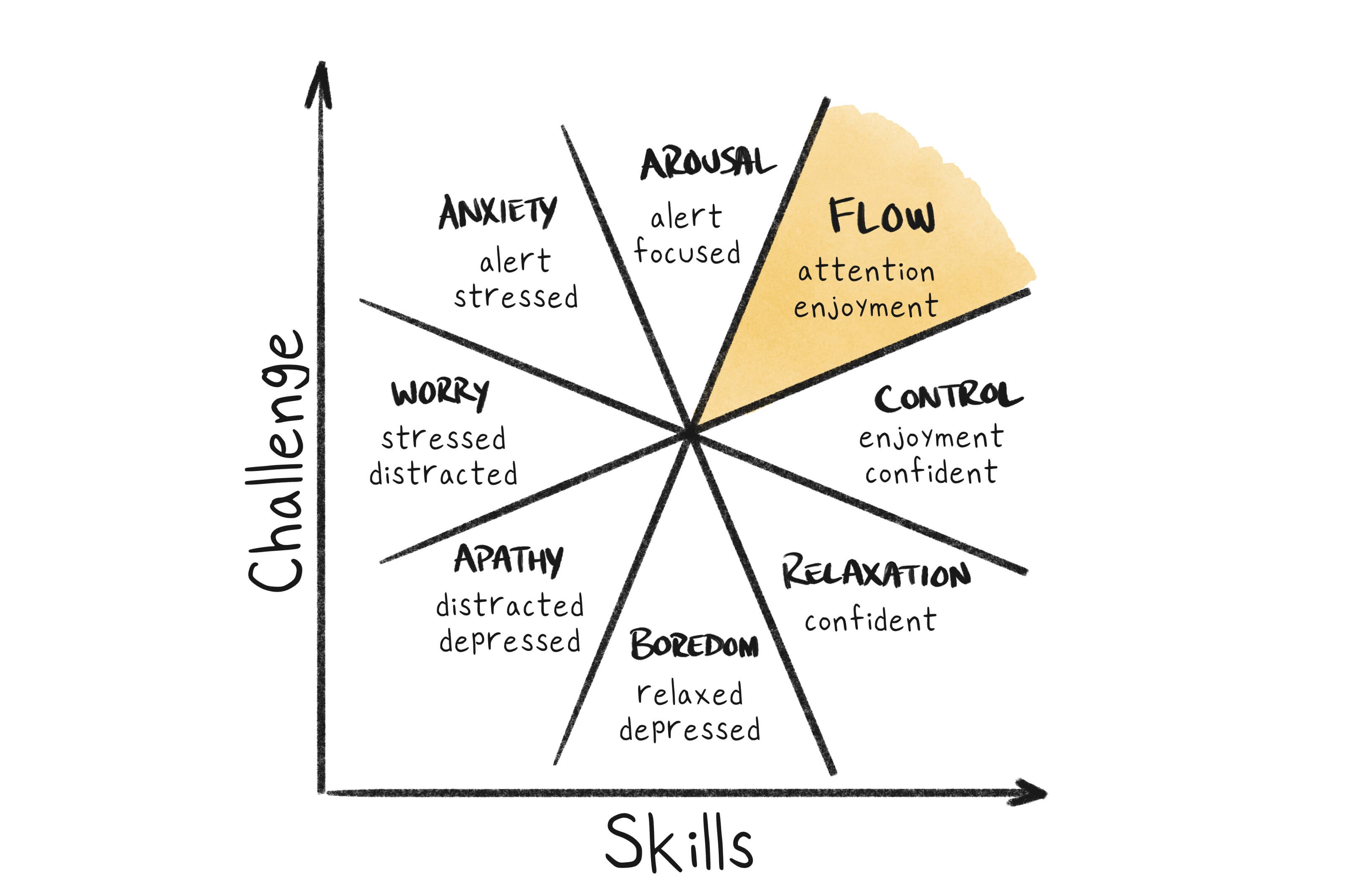What is Flow State?
Flow State, more colloquially known as being "in the zone," is a term coined by positive psychologist Mihály Csíkszentmihályi; it refers to a state of mind where your work fully immerses you, experience energized focus, and most importantly, derive enjoyment. Csíkszentmihályi theorizes that this elevated state of consciousness is the secret to happiness.
Know anyone who's been obsessed with making the perfect sourdough starter? There's a good chance they're experiencing something like a flow state. You may have brushed it off before as just another organizational buzzword, but understanding the concept of flow could be the key to maximizing joy in your everyday life, both at work and home. Finding flow can help you enter a more productive, creative, and, ultimately, happy state of mind.

Fascinated by the flow experiences of artists, Mihály Csíkszentmihályi started studying flow states to understand the phenomena and how to achieve it. But flow states aren't reserved for creatives and creative work; athletes can experience flow in sports, chess players might find flow during a tough match, and yes, you can even experience flow at work. People who have experienced flow state often describe it as a mental state or out-of-body experience where time flies by, and they get lost in what they're doing.
In a viral TED Talk that's been watched more than 6 million times, Mihály points to a few key indicators that can help you find more fulfilling ways to spend your time. So what are they, you ask?
Flow State Indicators
Complete involvement
Entering a state of flow requires a complete focus on the task at hand. To lose track of time, you need to have it in the first place. Block out time on your schedule, turn off Netflix, mute your notifications, and avoid multitasking. Multitasking can be a focus-killer when it comes to finding flow, read more on the hazards of context switching here.
A sense of ecstasy
This goes without saying, but flow activities should bring you joy. Finding flow is an exercise in increasing joy in your everyday life. Heck, it's in the name: positive psychology! It's hard finding flow doing something you dread, but be careful not to mistake leisure for flow. A state of flow should be exciting and engaging.
Inner clarity
Finding flow requires assuredness in your action. In a state of flow, you know what needs to be done and have clear goals. Steps learned by rote and engrained into muscle memory are recalled without much voluntary effort. Flow activities also provide immediate feedback, so you maintain an awareness of how well you're doing.
A balance between skill level and challenge
Your level of skill should meet the level of challenge. If the level of challenge is too high, anxiety sets in. On the other hand, if your level of skill is much higher, you run the risk of boredom. This can be a good measuring stick for both personal and professional growth.
A loss of self-consciousness
Flow activities allow a person to work beyond the boundaries of their ego. In a flow state, you're not hindered by worry and self-doubt and can throw your whole being into what you're doing. Self-consciousness fades away when you're not worried about remembering the next steps or the pressure to perform.
Timelessness
In a flow state, you are focused entirely on the present moment. Your sense of time is distorted, hours pass like minutes, and you lose track of time. Mihály Csíkszentmihályi was particularly interested in the artist's experience of flow where one could seemingly work through the body's need for food, water, and even sleep. If you're an avid gamer or have a teen at home that plays video games, you've definitely had some experience with this.
Intrinsic motivation
The experience of flow should be rewarding in and of itself. Flow activities can be rewarding in other ways- financially, physically, or spiritually-but the endeavor is pursued for its own sake. In other words, if recognition and material reward were taken away, would you still be doing it?
These facets can exist and be rewarding on their own, but the flow experience is found at the intersection of all seven. It's easy enough to grasp, but the concept of flow can be tough to find and even tougher to tap into. With the distractions of everyday life, looking out for your mental state and well-being can quickly take a backseat despite our best intentions, but carving out that time for your best moments, for timelessness and focus and joy, is crucial. Using lists to stay organized can reduce unnecessary stress and allow you the clarity and time to experience flow. Protecting your mental well-being and maximizing your happiness is essential, now more than ever.
Want to dive deeper? Check out our deep dive on Flow Theory!
